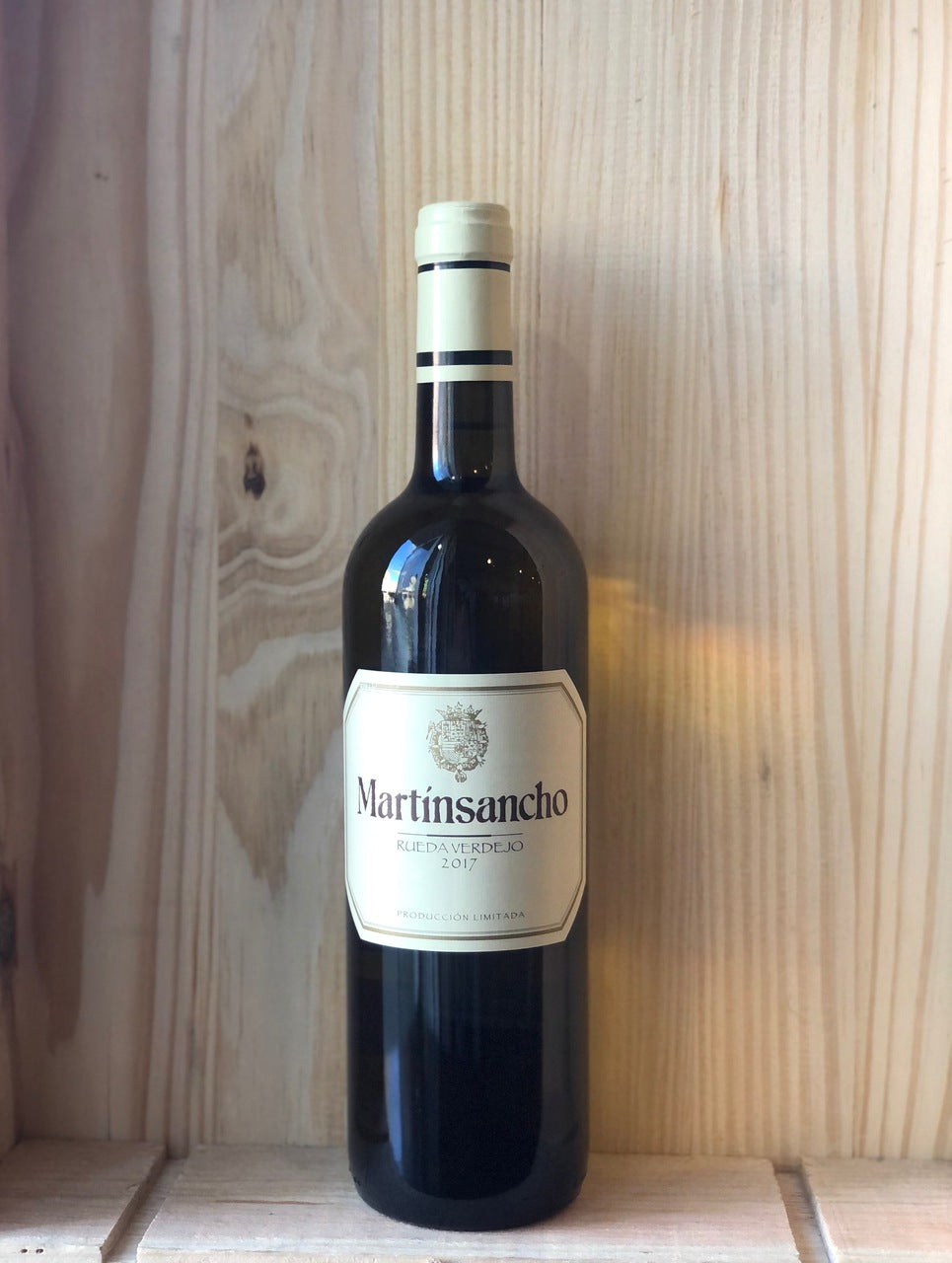From: Rueda, Castilla Y Leon, Spain
Varietal: Verdejo
Taste: This benchmark Verdejo comes from a 17th-century vineyard, or majuelo, called El Pago de Martínsancho. In the 1970s, massale cuttings from these venerable vines were used to expand the original plot, and it is from these 40-plus-year-old youngsters (all bush-grown and rooted in ancient alluvial gravels, some 30 meters deep) that this wine is now crafted.
The grapes were slowly pressed into two huge glass-lined tanks. The juice fermented naturally before being transferred, via gravity, to the cellars for undisturbed aging in century-old 5,000-litre oak casks (or cubas). Importantly, the barrel cellar here is underground—unusual for Spain. It holds at close to 10ºC year-round, enabling the Rodríguez clan to avoid sulfur additions during winemaking and to leave the wine to mature slowly, only on its fine lees.
This wine is always juicy and textural, with a fresh, racy mouthfeel and palate-awakening precision that belies its modest price tag. Its lovely juicy texture leads to a sappy, stony-fruited finale. Unique and 100% authentic, this is for us, benchmark Rueda—at a price almost too good to be true.
Pairing: Verdejo wine, a crisp and refreshing Spanish white, pairs well with various foods, especially seafood, salads, and dishes with citrus or herbs. Its acidity balances the richness of some heavier dishes while complementing the flavors of lighter fare. Some specific ideas include pairing this with seafood like grilled shrimp, ceviche, paella, and shrimp scampi or with salads served with lemon vinaigrette or fresh goat cheese. Grilled or roasted chicken served with salad, in sandwich form, or as a wrap also makes for an excellent pair.
About. Ángel Rodríguez Vidal belonged to a family of winegrowers and winemakers from La Seca with a winemaking tradition that dates back to 1780.
Martínsancho is Ángel Rodríguez’s mid-19th-century vineyard in the Rueda. This special vineyard and Ángel himself are responsible for preserving Rueda’s indigenous Verdejo grape. Planted in 1972, cuttings from this special vineyard were used in 1976 to establish a 10.11 ha (25-acre) vineyard planted in the traditional head-pruned fashion and dry-farmed. Low-yield “Verdejo” produces wines with a delicate floral nose, viscosity, and a long finish.
Ángel is one of the founders of Denominación de Origen Rueda, which was established in 1980. In 1982, King Juan Carlos awarded him the Cruz de la Orden Civil del Merito Agrícola in recognition of his dedication to preserving this variety.
Today, the winery is run by his daughter, the winemaker Mª Concepcion Rodriguez, who makes wine with the same spirit and love of the vineyard as her father. Farmed using organic principles, in 2022, the vineyards were awarded status by CCPAE-Spain. Her sons, Arturo and Eduardo, spent many long days with their grandfather Ángel in the vineyard, learning his passion for viticulture and the basics of goblet pruning. Eduardo is pursuing a master’s degree in Viticulture and Enology at the prestigious University of Montpellier, France.
Vineyard Profile
Historic 17th-century vineyard in La Seca, Valladolid, D.O. Rueda.
Altitude: 1575-1970 feet/480–600 meters
Vineyard Area: 25 acres
Soil: Alluvial gravel, over 30 feet deep
Vines Planted: Regrafted in 1972 from cuttings from a pre-phylloxera vineyard planted in the mid-19th century
Vine Training System: Head-pruned
Dry farmed
Harvest Notes
Hand-harvested during cool evenings
Destemmed, macerated with skins for aroma development
Fermented at 57ºF for 18-20 days using only indigenous yeast
Aged 6 months on fine lees
Winemaker's Notes
Angel Rodriguez was awarded the Cross of the Civil Order of Agricultura for reestablishing the Verdejo variety’s prominence in the region of origin by King Juan Carlos. Rich aromas of citrus and stone. Herbal hints complement ripe fruit with layered texture and pronounced minerality. Freshness and complexity mingle on the long finish.
Wine Summary
100% Verdejo; alcohol: 13%; estate vineyard at 1575-1970 feet in D.O. Rueda, planted in 1972 on pre-phylloxera wood and recognized for re-establishing the variety in the region of origin; deep alluvial gravel soil; dry farmed, head-trained vines; hand-harvested, destemmed and macerated on skins before pressing; fermented at 57ºF for 18–20 days using only indigenous yeast; aged on fine lees 6 months before bottling.
Technical Information
100% Verdejo
Alcohol: 13%
Total Acidity: 5.66 g/l
Residual Sugar: 0.64 g/l

